| Title | Brain-computer interfaces (BCIs): Detection Instead of Classification. |
| Publication Type | Journal Article |
| Year of Publication | 2008 |
| Authors | Schalk, G, Brunner, P, Gerhardt, LA, Bischof, H, Wolpaw, J |
| Journal | J Neurosci Methods |
| Volume | 167 |
| Issue | 1 |
| Pagination | 51-62 |
| Date Published | 01/2008 |
| ISSN | 0165-0270 |
| Keywords | Adult, Algorithms, Brain, Brain Mapping, Electrocardiography, Electroencephalography, Humans, Male, Man-Machine Systems, Normal Distribution, Online Systems, Signal Detection, Psychological, Signal Processing, Computer-Assisted, Software Validation, User-Computer Interface |
| Abstract | Many studies over the past two decades have shown that people can use brain signals to convey their intent to a computer through brain-computer interfaces (BCIs). These devices operate by recording signals from the brain and translating these signals into device commands. They can be used by people who are severely paralyzed to communicate without any use of muscle activity. One of the major impediments in translating this novel technology into clinical applications is the current requirement for preliminary analyses to identify the brain signal features best suited for communication. This paper introduces and validates signal detection, which does not require such analysis procedures, as a new concept in BCI signal processing. This detection concept is realized with Gaussian mixture models (GMMs) that are used to model resting brain activity so that any change in relevant brain signals can be detected. It is implemented in a package called SIGFRIED (SIGnal modeling For Real-time Identification and Event Detection). The results indicate that SIGFRIED produces results that are within the range of those achieved using a common analysis strategy that requires preliminary identification of signal features. They indicate that such laborious analysis procedures could be replaced by merely recording brain signals during rest. In summary, this paper demonstrates how SIGFRIED could be used to overcome one of the present impediments to translation of laboratory BCI demonstrations into clinically practical applications. |
| URL | http://www.ncbi.nlm.nih.gov/pubmed/17920134 |
| DOI | 10.1016/j.jneumeth.2007.08.010 |
| Alternate Journal | J. Neurosci. Methods |
| PubMed ID | 17920134 |

